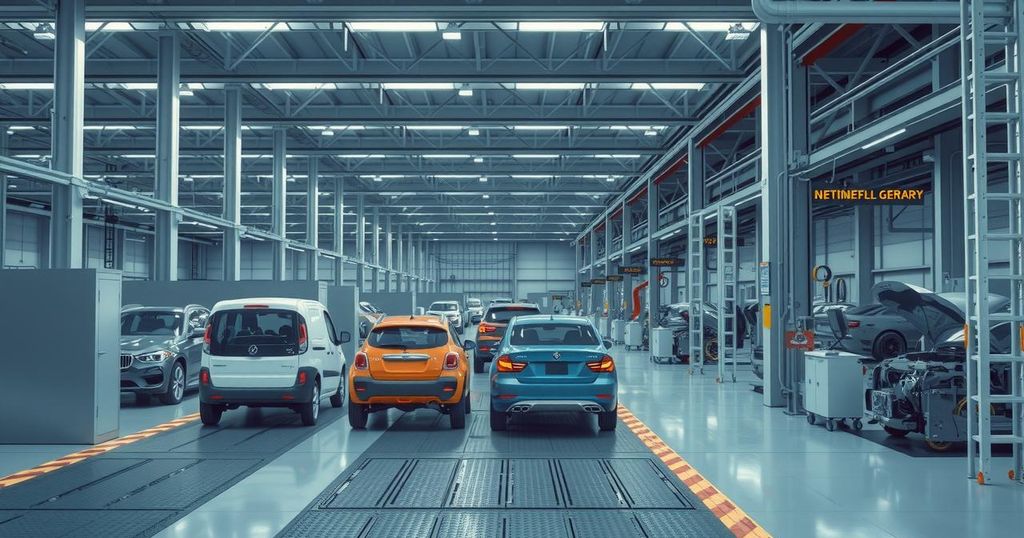BMW AG forecasts its carmaking profits will be significantly below long-term goals, citing US-EU trade tensions and declining sales in China. The automaking margin is projected between 5% and 7% for the year, compared to 6.3% last year. BMW is optimistic about future growth, planning to launch a new line of EVs, yet faces increased competition and tariff impacts.
BMW AG anticipates a challenging year ahead for its carmaking profits, which are projected to remain substantially below long-term goals due to escalating trade tensions and declining sales in China. The manufacturer estimates an automaking margin of 5% to 7% for the year, down from 6.3% in 2024, which marks the lowest performance in four years. Traditionally, BMW aims for margins above 8%.
The company’s shares experienced a decline of up to 4.5% on Friday and have declined over 20% within the past year. BMW faces intensified competition in China, where local firms like BYD Co. are gaining market shares, compounded by tariffs that could cost approximately €1 billion in 2024.
In a bid to regain market share, BMW plans to launch its Neue Klasse line of electric vehicles later this year and commit to releasing 40 new and updated vehicles across all drivetrain variants by 2027. Chief Executive Officer Oliver Zipse remains optimistic despite the challenges, stating, “We have growth ambitions because we have strong products. We look with a positive mood into 2025 despite all the political turmoil we might have.”
Current US tariffs are affecting BMW’s manufacturing operations in San Luis Potosi, Mexico, due to non-compliance with local content rules of the USMCA trade agreement. To mitigate these impacts, the company is exploring options to increase manufacturing presence in North America.
BMW’s net profit fell by approximately 37% in 2024, reaching €7.68 billion ($8.3 billion), largely due to additional recall costs from braking systems supplied by Continental AG. Furthermore, global sales dipped by 4%, particularly influenced by a 13.4% drop in China amid declining car prices and rising manufacturing expenses.
Despite these discouraged sales figures in China, BMW remains hopeful about slight growth in 2024, citing potential stabilization of inflation and moderate interest rate reductions as catalysts for demand, albeit with skepticism from analysts regarding growth assumptions in Europe and the US.
In summary, BMW is navigating through significant challenges marked by reduced carmaking profits due to trade tensions and weak Chinese sales. The company’s strategy includes the introduction of new electric vehicles and a potential shift in manufacturing to North America. While optimistic about future growth, the company must address the ongoing market difficulties to achieve its long-term profit targets.
Original Source: www.business-standard.com




